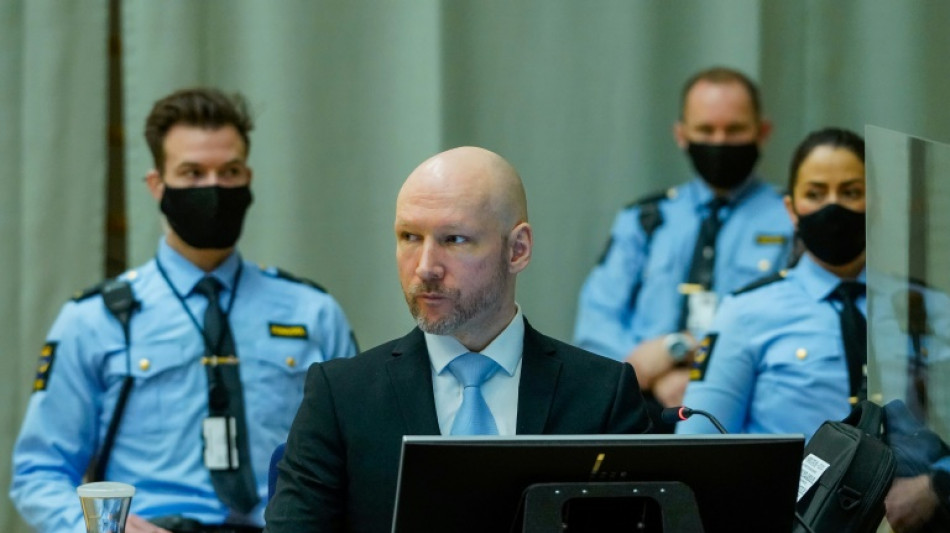
-
 Australia's Head backs struggling opening partner Weatherald
Australia's Head backs struggling opening partner Weatherald
-
'Make emitters responsible': Thailand's clean air activists

-
 Zelensky looks to close out Ukraine peace deal at Trump meet
Zelensky looks to close out Ukraine peace deal at Trump meet
-
MCG curator in 'state of shock' after Ashes Test carnage

-
 Texans edge Chargers to reach NFL playoffs
Texans edge Chargers to reach NFL playoffs
-
Osimhen and Mane score as Nigeria win to qualify, Senegal draw

-
 Osimhen stars as Nigeria survive Tunisia rally to reach second round
Osimhen stars as Nigeria survive Tunisia rally to reach second round
-
How Myanmar's junta-run vote works, and why it might not

-
 Watkins wants to sicken Arsenal-supporting family
Watkins wants to sicken Arsenal-supporting family
-
Arsenal hold off surging Man City, Villa as Wirtz ends drought

-
 Late penalty miss denies Uganda AFCON win against Tanzania
Late penalty miss denies Uganda AFCON win against Tanzania
-
Watkins stretches Villa's winning streak at Chelsea

-
 Zelensky stops in Canada en route to US as Russia pummels Ukraine
Zelensky stops in Canada en route to US as Russia pummels Ukraine
-
Arteta salutes injury-hit Arsenal's survival spirit

-
 Wirtz scores first Liverpool goal as Anfield remembers Jota
Wirtz scores first Liverpool goal as Anfield remembers Jota
-
Mane rescues AFCON draw for Senegal against DR Congo

-
 Arsenal hold off surging Man City, Wirtz breaks Liverpool duck
Arsenal hold off surging Man City, Wirtz breaks Liverpool duck
-
Arsenal ignore injury woes to retain top spot with win over Brighton

-
 Sealed with a kiss: Guardiola revels in Cherki starring role
Sealed with a kiss: Guardiola revels in Cherki starring role
-
UK launches paid military gap-year scheme amid recruitment struggles

-
 Jota's children join tributes as Liverpool, Wolves pay respects
Jota's children join tributes as Liverpool, Wolves pay respects
-
'Tired' Inoue beats Picasso by unanimous decision to end gruelling year

-
 Thailand and Cambodia declare truce after weeks of clashes
Thailand and Cambodia declare truce after weeks of clashes
-
Netanyahu to meet Trump in US on Monday

-
 US strikes targeted IS militants, Lakurawa jihadists, Nigeria says
US strikes targeted IS militants, Lakurawa jihadists, Nigeria says
-
Cherki stars in Man City win at Forest

-
 Schwarz records maiden super-G success, Odermatt fourth
Schwarz records maiden super-G success, Odermatt fourth
-
Russia pummels Kyiv ahead of Zelensky's US visit

-
 Smith laments lack of runs after first Ashes home Test loss for 15 years
Smith laments lack of runs after first Ashes home Test loss for 15 years
-
Russian barrage on Kyiv kills one, leaves hundreds of thousands without power

-
 Stokes, Smith agree two-day Tests not a good look after MCG carnage
Stokes, Smith agree two-day Tests not a good look after MCG carnage
-
Stokes hails under-fire England's courage in 'really special' Test win

-
 What they said as England win 4th Ashes Test - reaction
What they said as England win 4th Ashes Test - reaction
-
Hong Kongers bid farewell to 'king of umbrellas'

-
 England snap 15-year losing streak to win chaotic 4th Ashes Test
England snap 15-year losing streak to win chaotic 4th Ashes Test
-
Thailand and Cambodia agree to 'immediate' ceasefire

-
 Closing 10-0 run lifts Bulls over 76ers while Pistons fall
Closing 10-0 run lifts Bulls over 76ers while Pistons fall
-
England 77-2 at tea, need 98 more to win chaotic 4th Ashes Test

-
 Somalia, African nations denounce Israeli recognition of Somaliland
Somalia, African nations denounce Israeli recognition of Somaliland
-
England need 175 to win chaotic 4th Ashes Test

-
 Cricket Australia boss says short Tests 'bad for business' after MCG carnage
Cricket Australia boss says short Tests 'bad for business' after MCG carnage
-
Russia lashes out at Zelensky ahead of new Trump talks on Ukraine plan

-
 Six Australia wickets fall as England fight back in 4th Ashes Test
Six Australia wickets fall as England fight back in 4th Ashes Test
-
New to The Street Show #710 Airs Tonight at 6:30 PM EST on Bloomberg Television

-
 Dental Implant Financing and Insurance Options in Georgetown, TX
Dental Implant Financing and Insurance Options in Georgetown, TX
-
Man Utd made to 'suffer' for Newcastle win, says Amorim

-
 Morocco made to wait for Cup of Nations knockout place after Egypt advance
Morocco made to wait for Cup of Nations knockout place after Egypt advance
-
Key NFL week has playoff spots, byes and seeds at stake

-
 Morocco forced to wait for AFCON knockout place after Mali draw
Morocco forced to wait for AFCON knockout place after Mali draw
-
Dorgu delivers winner for depleted Man Utd against Newcastle


Psychiatrist says Breivik still a danger, hitting parole chances
A court-appointed psychiatrist on Wednesday said Anders Behring Breivik is as dangerous now as when he carried out Norway's deadliest peacetime attack in 2011, seemingly quashing his already-slim chances of early release.
Neo-Nazi Breivik, who killed 77 people in twin attacks, was sentenced in 2012 to 21 years in prison, which can be extended as long as he is considered a threat.
He insists he has distanced himself from violence, and wants to be paroled after serving the minimum court-ordered 10 years.
"The risk of future acts of violence has not changed since 2012 and 2013 when I did my first evaluations," psychiatrist Randi Rosenqvist told his parole hearing, adding it was "high".
She has conducted several assessments of Breivik, now 42, over the past decade.
He still suffers from "asocial, histrionic, and narcissistic" personality disorders, entirely lacks empathy, and would have "little chance of functioning" in society if released, Rosenqvist told the Telemark district court.
She was speaking on the second day of the hearings, which for security reasons are being held in the gymnasium of the Skien prison where Breivik is incarcerated.
- No remorse -
On July 22, 2011, the right-wing extremist set off a truck bomb near the government offices in Oslo, killing eight people, before gunning down 69 others, mostly teens, at a Labour Party youth wing summer camp on the island of Utoya.
He said he killed his victims because they embraced multiculturalism.
The testimony by Rosenqvist, the only psychiatrist called during the parole hearing, is considered key in determining whether Breivik will be paroled, which most experts believe very unlikely at this stage.
Breivik sat calmly throughout Wednesday's hearing, but shook his head several times and even laughed on occasion as Rosenqvist spoke.
Prison officials also told the court that Breivik was not ready for parole, citing his lack of credible remorse and his repeated attempts to spread his ideology.
"The prison believes there is a big risk he would once again commit crimes similar to those for which he was convicted if he were to be released at this stage," Emily Krokann, legal counsel for the Skien prison, said.
- Cut off from outside world -
Breivik meanwhile complained to the court about his prison conditions, saying he was treated "like an animal" with inadequate contact with the outside world.
He has three prison cells at his disposal, with access to a television with a DVD player, a games console, and gym machines.
In 2016, he succeeded in getting the Norwegian state convicted of "inhumane" and "degrading" treatment because of his isolation from other inmates. The verdict was overturned on appeal.
"Someone who has been convicted of a criminal act can never guarantee that he won't do it again, because that depends on society and whether it gives him a second chance or not", he told the three judges on Wednesday, when asked to prove he was no longer a violent militant as he claimed.
His request for early release has upset families of the victims and survivors, who feared he would use the hearings, broadcast live by several media, to spread his ideological propaganda.
Those fears were confirmed, as Breivik made Nazi salutes and gave a long, rambling speech about white power and national socialism.
Breivik told the judges that if he were to be paroled, he would continue his neo-Nazi work in a non-violent manner.
Per Oberg, a Swede who heads the Nordic Resistance Movement and who was called by the defence, said his neo-Nazi group was willing to be in contact with Breivik to break his prison isolation.
"We don't judge anyone," Oberg told the court by telephone from Sweden.
Rosenqvist addressed the difficulties involved in providing Breivik with social interaction, which is considered a necessary step in a convict's rehabilitation ahead of a possible reintegration into society.
Breivik's communications and visits with the outside world are heavily restricted to prevent him from building networks capable of carrying out new attacks.
"There aren't a lot of prisoners who want to speak to him", she said. "Most of them want to harm him."
If Breivik's parole request is denied, he is in theory allowed to apply again after one year.
T.Ward--AMWN

